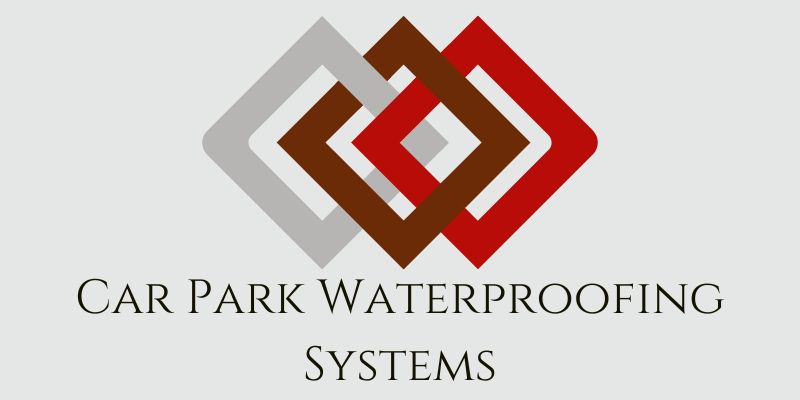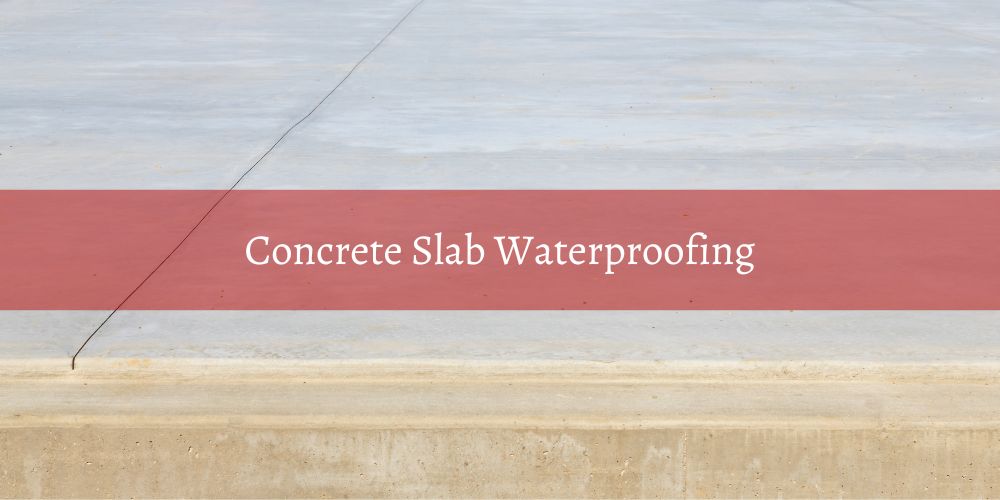Concrete slab waterproofing involves the application of waterproofing systems to concrete slabs to prevent water ingress and protect the structural integrity of the concrete. This process typically includes surface preparation, the application of primers, and the use of waterproof membranes or coatings to create a durable, impermeable barrier. Effective waterproofing prevents issues such as cracking, spalling, and corrosion of reinforcement steel, extending the lifespan of the concrete structure. It also helps maintain the appearance and functionality of the slab, reducing maintenance costs over time.
Car Park Waterproofing Systems provide specialist concrete slab waterproofing services to protect structural slabs from water ingress, chemical attack, and long-term deterioration. Whether for new construction or remedial works, our waterproofing systems are designed to integrate seamlessly with concrete substrates, delivering a flexible, durable, and watertight barrier. We apply advanced liquid-applied membranes, including polyurethane and PMMA systems, that bond directly to the slab and accommodate movement without compromising performance. These solutions are ideal for exposed decks, intermediate levels, and basement car parks where moisture protection is critical. With precise surface preparation and expert application, Car Park Waterproofing Systems ensure your concrete slab remains protected, stable, and built to last in even the most demanding conditions.
What Is Concrete Slab Waterproofing?
Concrete slab waterproofing is a critical process aimed at protecting concrete surfaces from water penetration, which can lead to structural damage and deterioration. This process involves applying waterproofing membranes or coatings to the surface of the concrete slab, creating an impermeable barrier that prevents water ingress. According to the International Concrete Repair Institute, effective waterproofing can extend the lifespan of concrete structures by up to 50%. Waterproofing systems typically include liquid-applied membranes, sheet membranes, or cementitious coatings, each tailored to specific environmental conditions and structural requirements. In the UK, where frequent rain and damp conditions are prevalent, waterproofing is especially important to prevent issues such as freeze-thaw damage and corrosion of steel reinforcements within the concrete. Ensuring proper waterproofing also enhances the safety and usability of the concrete slab, making it suitable for various applications such as car parks, basements, and balconies
Have a question about an upcoming project?
What Are The Benefits of Concrete Slab Waterproofing?
Concrete slab waterproofing offers numerous benefits, making it an essential practice for maintaining the longevity and safety of concrete structures. The primary advantage is the protection of structural integrity, preventing damage caused by water infiltration. This, in turn, extends the lifespan of the concrete, reducing the need for frequent repairs and replacements. Additionally, effective waterproofing prevents water damage, enhancing the safety of the structure by mitigating risks associated with damp and slippery surfaces. Cost efficiency is another significant benefit, as waterproofing minimizes long-term maintenance expenses. Furthermore, it enhances the aesthetic appeal of the structure, which can increase property value and promote environmental sustainability. Let’s delve deeper into each of these benefits.
- Structural Integrity Protection
- Extended Lifespan
- Prevention of Water Damage
- Improved Safety
- Cost Efficiency
- Enhanced Aesthetic Appeal
- Increased Property Value
- Environmental Sustainability
1. Structural Integrity Protection
Concrete slab waterproofing is crucial for protecting the structural integrity of concrete surfaces. Water infiltration can cause severe damage, including the corrosion of steel reinforcements and the deterioration of concrete itself. According to the Chartered Institution of Building Services Engineers (CIBSE), effective waterproofing can prevent up to 80% of structural damage caused by water ingress. In the UK, where frequent rainfall and damp conditions are common, maintaining the structural integrity of concrete slabs through waterproofing is essential for ensuring the long-term stability and safety of buildings and infrastructure. Additionally, waterproofing helps to avoid costly structural repairs and prolongs the life of the concrete structure, ensuring it can withstand environmental stressors and heavy usage over time.
2. Extended Lifespan
Waterproofing concrete slabs significantly extends their lifespan by protecting them from water-related damage. Research by the Building Research Establishment (BRE) indicates that well-maintained waterproofing systems can double the service life of concrete structures, typically extending their lifespan from 30 to 50 years. This proactive approach reduces the need for frequent repairs and costly replacements, ensuring that the structure remains functional and durable over an extended period. In the UK's variable climate, high-quality waterproofing materials are essential for providing long-term protection against environmental stressors, such as freeze-thaw cycles and heavy rainfall, which can accelerate the degradation of concrete surfaces.
3. Prevention of Water Damage
Effective concrete slab waterproofing prevents water damage, such as cracks, spalling, and efflorescence, which can compromise the integrity and appearance of the structure. According to the American Concrete Institute, waterproofing can reduce the rate of concrete deterioration by up to 75%. This is particularly important in the UK, where water ingress can be exacerbated by freeze-thaw cycles, leading to significant structural damage. By creating an impermeable barrier, waterproofing systems prevent water from penetrating the concrete, thereby maintaining its integrity and appearance. This not only preserves the structural health of the concrete but also enhances its longevity and reduces the frequency of maintenance interventions required.
4. Improved Safety
Waterproofing enhances the safety of concrete slabs by preventing hazardous conditions such as slippery surfaces and ice formation. The Health and Safety Executive (HSE) reports that well-maintained surfaces can reduce the risk of slips, trips, and falls by up to 30%. In the UK, where wet and icy conditions are frequent, ensuring that concrete slabs remain dry and safe is crucial for protecting both pedestrians and vehicles. Effective waterproofing minimizes the risk of accidents and injuries, contributing to a safer environment in residential, commercial, and public spaces. Additionally, waterproofing can prevent the formation of mold and mildew, which can pose health risks to users of the facility, ensuring a safer and healthier environment for all.
5. Cost Efficiency
Investing in concrete slab waterproofing is a cost-efficient strategy that prevents the need for extensive and expensive repairs in the future. The Building Research Establishment (BRE) reports that preventive maintenance, including waterproofing, can reduce overall repair costs by up to 40%. By addressing potential water ingress issues early on, property owners and facility managers can avoid the high costs associated with major structural repairs and emergency maintenance. In the UK, where the cost of construction and repair is high, waterproofing provides a cost-effective solution for maintaining the functionality and appearance of concrete structures. This proactive approach not only saves money but also minimizes downtime and disruptions caused by repair activities, ensuring that the facility remains operational and financially viable.
6. Enhanced Aesthetic Appeal
Waterproofing helps preserve the aesthetic appeal of concrete slabs by preventing water stains, efflorescence, and other forms of water damage that can detract from the visual quality of the facility. The Urban Land Institute notes that aesthetically pleasing properties can increase property values by up to 10%. In the UK, maintaining an attractive appearance is vital for commercial and residential properties to stay competitive. Effective waterproofing ensures that concrete surfaces remain visually appealing, reflecting well on the property's overall management and enhancing user satisfaction. A clean and well-maintained appearance also contributes to a positive first impression, which is crucial for attracting and retaining tenants and customers.
7. Increased Property Value
A well-maintained and waterproofed concrete slab can significantly increase property value by enhancing its functionality, safety, and visual appeal. The Urban Land Institute suggests that properties with high-quality waterproofing can see value increases of up to 10%. In the UK, where property values are heavily influenced by the quality of amenities and infrastructure, a waterproofed concrete slab can make a property more desirable to potential buyers and tenants. This is especially important for commercial properties where the condition of facilities can impact tenant satisfaction and retention. By investing in waterproofing, property owners can improve the marketability and profitability of their assets.
8. Environmental Sustainability
Concrete slab waterproofing can incorporate sustainable practices, such as using eco-friendly materials and improving drainage systems to manage stormwater runoff effectively. According to the Environmental Protection Agency (EPA), sustainable waterproofing practices can reduce a facility’s carbon footprint by up to 30%. In the UK, where environmental regulations are becoming increasingly stringent, incorporating sustainability into waterproofing projects can help property owners meet these requirements and enhance their reputation as environmentally responsible businesses. Using recycled materials in the waterproofing process and implementing effective drainage solutions also contribute to environmental protection and sustainability. These practices not only benefit the environment but also appeal to eco-conscious tenants and customers, enhancing the property's overall value and marketability.
Interested in concrete slab waterproofing or need a quote for your project? Click the button below to get in touch with our experienced team who are ready to help you with your waterproofing needs.


